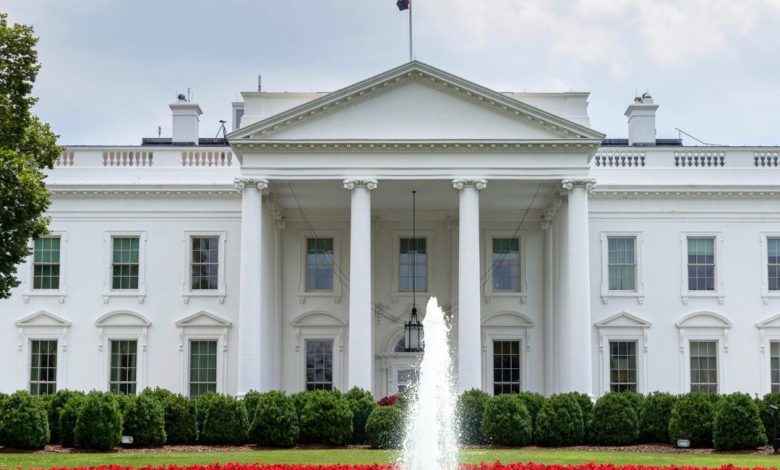Economic
Lifting of U.S. Restrictions on Sudan’s Economy: Restoration of Rights and Gains

Report by: Rehab Abdullah
Last Tuesday, the White House announced the lifting of U.S. commercial restrictions on all transactions between Sudan and the United States. This followed a presidential memorandum issued by the U.S. President, which, in paragraph five, exempts Sudan from the sanctions imposed under the U.S. law related to human trafficking. It allows Sudan, along with other nations, to continue receiving developmental assistance and international health projects, as these measures align with U.S. law and national interests.
The available data indicates that this decision will have a significant impact on Sudan in general, and on its economy in particular.
A 25-Year Ban
Banking expert Waleed Daleel stated that the U.S. sanctions and embargo, which had been imposed on Sudan for more than 25 years, deprived the country of many rights, gains, and opportunities. Sectors of labor and production collapsed, and Sudanese citizens were deprived of basic necessities due to the embargo.
Positive Impact
In his interview with Al-Ahdath, Waleed Daleel emphasized that the decision will have a highly positive impact on Sudan’s economy and, in the long term, on Sudan’s development. He explained this by pointing out the increase in production, productivity, and the export of Sudanese goods to the U.S., such as gold, uranium, gum Arabic, cotton, leather, textiles, and agricultural and forestry products.
Daleel added that the positive impact on Sudan will be immense, touching on several areas, including political, economic, social, cultural, and developmental matters. The decision will also instill trust and sustainability in the supply chain of information and communication technology (ICT) and software, which were previously banned by the U.S. for countries it considered adversaries, including Sudan.
Release of $30 Billion
He pointed out that the Sudanese economy has faced challenges since South Sudan’s secession in July 2011, in addition to the U.S. economic sanctions imposed on Sudan for about two decades, and more recently the conflict with the Rapid Support Forces. Waleed Daleel predicted that the new U.S. decision would result in several positive outcomes for Sudan’s economy, including an increase in foreign currency liquidity. He added, “The lifting of sanctions on frozen financial assets in the U.S. is among the most significant aspects of the decision to lift economic sanctions on Sudan, as it will allow for the release of $30 billion in Sudanese assets, according to the U.S. Office of Foreign Assets Control (OFAC).”
Lifting Restrictions on Banking Transactions
Daleel stressed that obtaining these funds, along with the removal of restrictions on Sudan’s financial and banking transactions with the outside world, would contribute to a substantial increase in foreign currency liquidity in the country. This, in turn, would bolster the country’s foreign exchange reserves. Additionally, the availability of foreign currency liquidity would help stabilize Sudan’s exchange market. The decision will also lead to investment inflows and gradually restore confidence in Sudan’s economy, positively affecting capital flow into the country.
With the easing of financial and banking transactions from abroad, foreign companies—particularly Russian and Chinese firms—are expected to increase their investments in Sudan’s agricultural and mining sectors.
Opening Export Markets
Daleel noted that lifting the commercial restrictions would strengthen Sudan’s trade relations with the outside world. He believes that the U.S. decision will open markets for Sudanese exports, particularly the U.S. market. Moreover, it will allow Sudan to import goods essential for the rehabilitation of its economic sectors. In the past, various sectors, especially industrial and service sectors such as aviation, suffered from a lack of investment due to the inability to import the necessary goods, equipment, and spare parts for rehabilitation.
The removal of trade restrictions will also ease many of the procedural and legislative obstacles that hinder private sector activities in Sudan. The government is relying on this sector to support the country’s economic plans and diversify its economy. Sudan aims to double its gold production and increase the output of agricultural products such as sugar, cotton, and oil, among others. These ambitions are part of Sudan’s broader goal to boost its exports and increase its financial revenues.
Conditions for Success
Waleed Daleel linked the success of the Sudanese economy in capitalizing on the lifting of sanctions to several external and internal factors. He added, “The economic benefits of the U.S. decision will depend on the speed of implementation, or in other words, the time required for economic reforms.” The decision coincides with Sudan’s ongoing economic and financial reforms, including the rationalization of subsidies for energy and electricity, which will gradually enhance financial stability in the country.
To improve the investment climate, which faces numerous obstacles, the government must continue its reforms. Political stability, including the resolution of internal conflicts in regions such as Darfur and the southern and eastern states, is also crucial for economic stability and attracting foreign investment.
Waleed Daleel concluded that the U.S. decision provides a solid foundation for Sudan to stabilize its economy and enhance diversification. However, achieving this requires the government to continue necessary economic reforms to support growth and improve the investment climate, through a series of political, security, and economic measures.
Further Measures
Meanwhile, economic expert Dr. Haitham Fathi praised the U.S. decision and expressed hope for more supportive decisions. He said in an interview with Al-Ahdath, “Given the crises Sudan is currently facing, the U.S. government should take further steps to allow Sudan to benefit from all U.S. aid, especially in light of the ongoing war and natural disasters that have affected the country.”
Receiving Aid
Fathi believes that such decisions represent a significant step forward in Sudan’s relations with the global community, especially with the U.S., and will contribute to efforts aimed at rebuilding Sudan, particularly in rehabilitating the health and education sectors, which were destroyed by rebel militias.
He added, “Since this decision lifts long-standing restrictions on Sudan, it allows Sudan to access U.S. development assistance and benefit from the global health programs run by USAID.”



